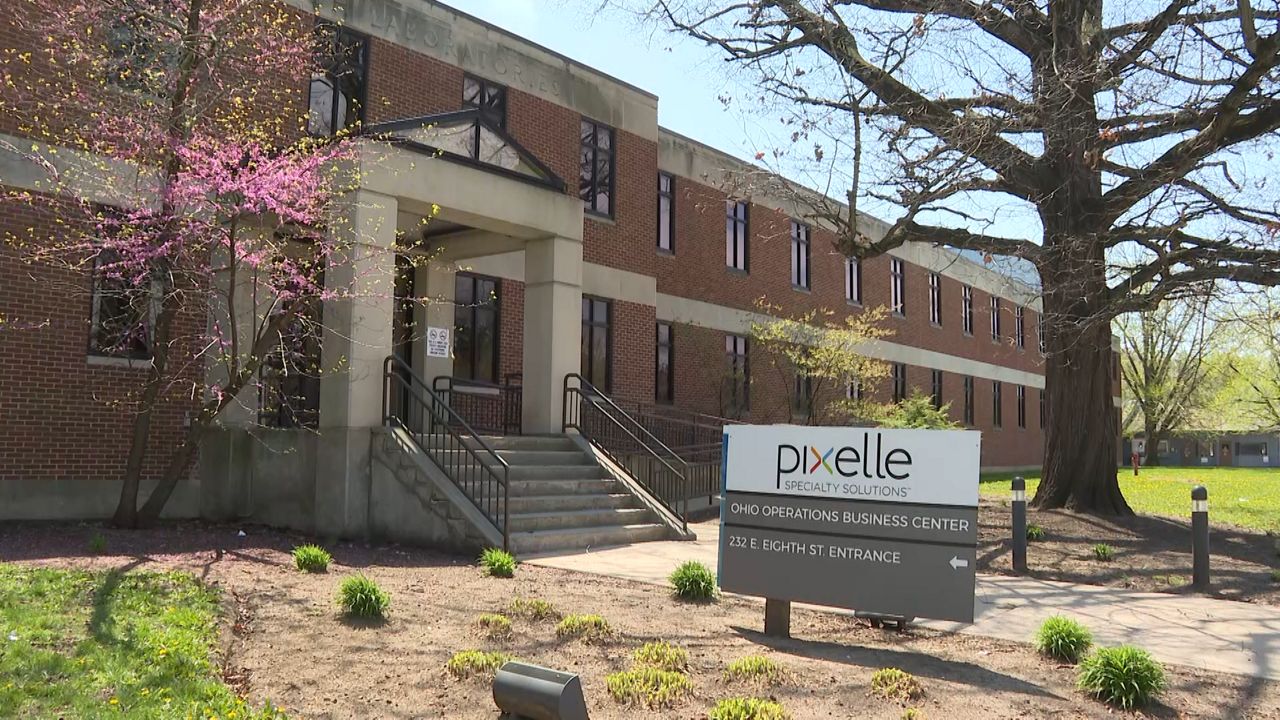EAST PALESTINE, Ohio – For Jami Cozza, the small northeast Ohio village of East Palestine is her entire world.
“I pray that we’re the biggest comeback story in history, but in my heart, I don’t feel like my daughter will ever get to play in that creek like I did when I was a kid,” she told Spectrum News last week.
Cozza has 47 family members who live in the community. Everyone is trying to figure out what the future will look like following the recent toxic train derailment.
It’s been just over nine weeks since a Norfolk Southern train derailed in East Palestine.
The controlled release of toxic chemicals that followed became a national news story and has changed the lives of those who call the village home.
Spectrum News has been closely monitoring the response by local, state, and federal government leaders since the derailment happened. It could have national implications.
Cozza’s home sits about a mile away from the derailment site, with Sulphur Run Creek running right alongside it.
When officials decided a controlled release of the toxic chemicals that were burning after the derailment would be safer than risking an explosion, a black cloud enveloped East Palestine, spreading toxic fumes into the air and water.
Cozza evacuated with her family, and they haven’t returned home since. They bounced from hotel to hotel before finding an Airbnb rental.
“I realized last week that this is going to be the rest of my life,” Cozza said. “This is when I should be sitting on my porch, sipping coffee, watching my grandkids play. I’m going to be fighting this until the day I die. This is my new reality.”
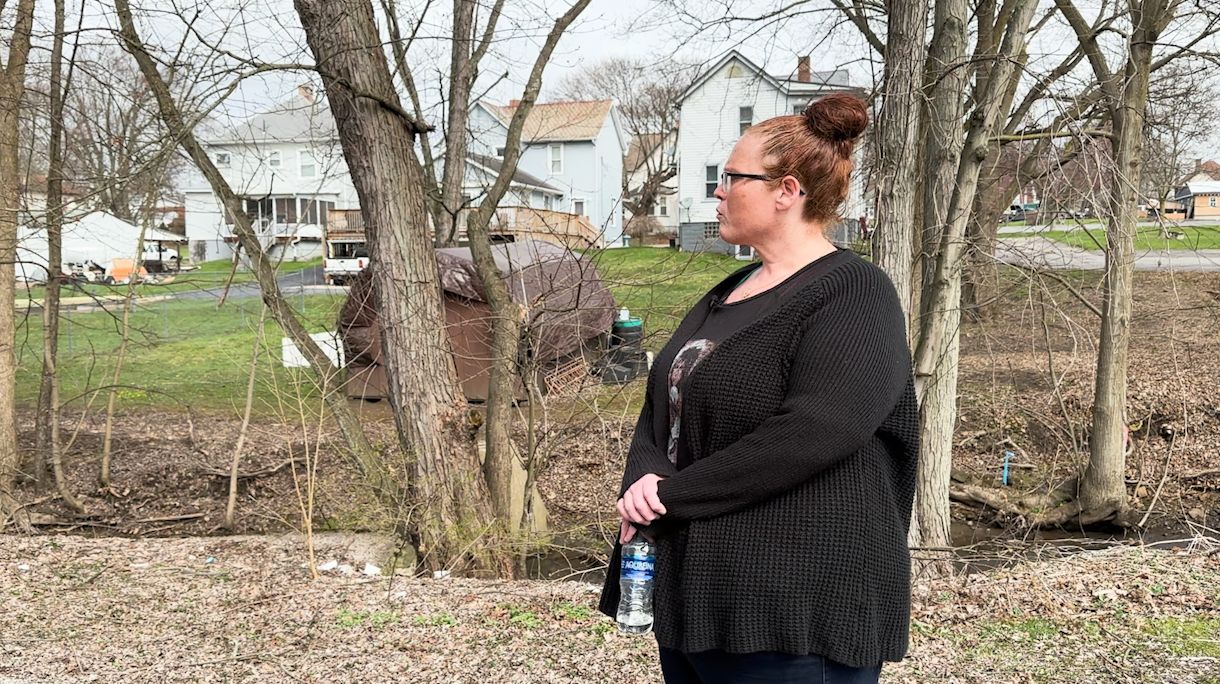
Spectrum News first met Cozza one month ago in Washington.
She had traveled to the nation’s capital to attend the first hearing where Norfolk Southern CEO Alan Shaw faced members of Congress after the derailment.
“My primary focus right now is getting my family and my community that are dying out of there,” Cozza said at the time.
Since then, she said the rail company has offered financial assistance to help her family relocate, but she feels frozen in place as she and her relatives struggle with respiratory illnesses that appeared after the train derailed.
“How do you move forward when you still don’t have answers and you’re being actively poisoned?” Cozza asked, standing outside her home she no longer feels safe living in.
In Washington, East Palestine has become an early focus of the 2023 agenda.
Environmental Protection Agency Administrator Michael Regan and Transportation Secretary Pete Buttigieg have visited the derailment site, alongside a list of Ohio lawmakers and other elected officials.
Shaw, the rail CEO, has already testified before two Senate committees.

And a bipartisan group of Ohio lawmakers is trying to create a legislative fix to help decrease the average 1,000 train derailments that happen each year across the country.
Last week, Ohio Sen. Sherrod Brown (D) toured the site of another Norfolk Southern derailment that happened last October in the city of Sandusky.
While no toxic chemicals were spilled and no one was injured, the train cars destroyed an underpass and shut down a main road for months. It’s only partially reopened today, and local leaders remain frustrated.
“We’re nearly seven months away from this derailment, this bridge still isn’t fixed and they were running trains within hours,” one official said during a press conference with Brown.
In an interview with Spectrum News, the senator said the East Palestine derailment has ignited a new national focus on rail safety. He also said it has reminded him how much power the rail industry has had in Washington over the years, thanks to a powerful lobbying operation.
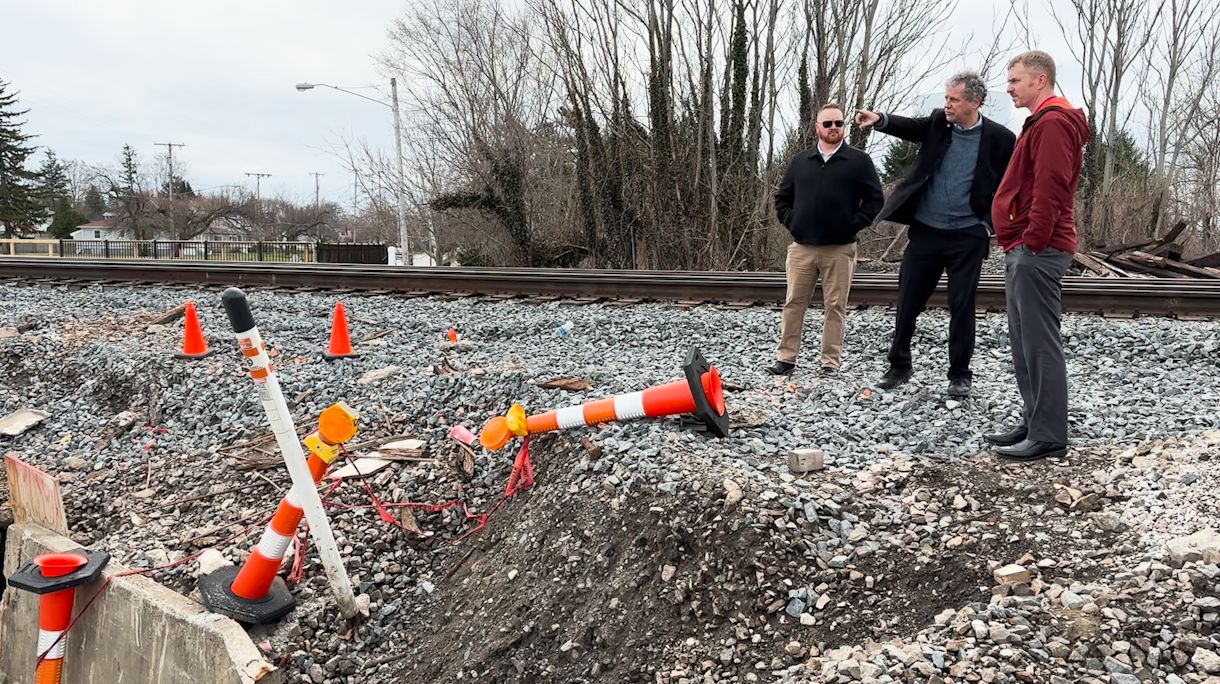
Does Brown think East Palestine will impact that influence long-term?
“Well the railroads have gotten away with so much because people don’t pay attention…we’re not going to let the railroads slow walk this and defeat it by people losing interest, by you guys taking your cameras and going elsewhere, by politicians forgetting about it,” Brown said. “We’re not going to let them do that, so their power won’t be what it used to be.”
Sen. JD Vance, Brown’s Republican counterpart, said in a separate interview that he feels similarly.
“Really what I take away from it is that this is a crisis that evolves over time,” Vance told Spectrum News on March 28. “And if we want to do right by the people of East Palestine, and I think all of us do, Democrats and Republicans, we all want to do that, we’ve got to stay on top of it and respond to the facts on the ground.”
Vance and Brown are leading an effort in the Senate to pass a sweeping rail safety bill that would stiffen rail regulations and make changes, like requiring two-person crews on every freight train. Senate Majority Leader Chuck Schumer and President Joe Biden have endorsed it.
But the bill might have trouble getting passed by the Republican-led House, where some GOP members are skeptical that more regulation is the answer – a common rail industry refrain.
So a bipartisan group of Ohio House members has drafted a similar, but slightly different, rail safety bill. It does not include that two-person crew requirement.
The group held a rare bipartisan press conference on March 30, before Congress left for April recess, saying they are united in being realistic about what it will take to make change.
“If we waited for the perfect bill, nothing would happen and people in East Palestine, across Ohio, and across the nation would be dissatisfied. And we didn’t want that to happen,” Rep. Emilia Sykes, D-Ohio’s 13th District, told Spectrum News.
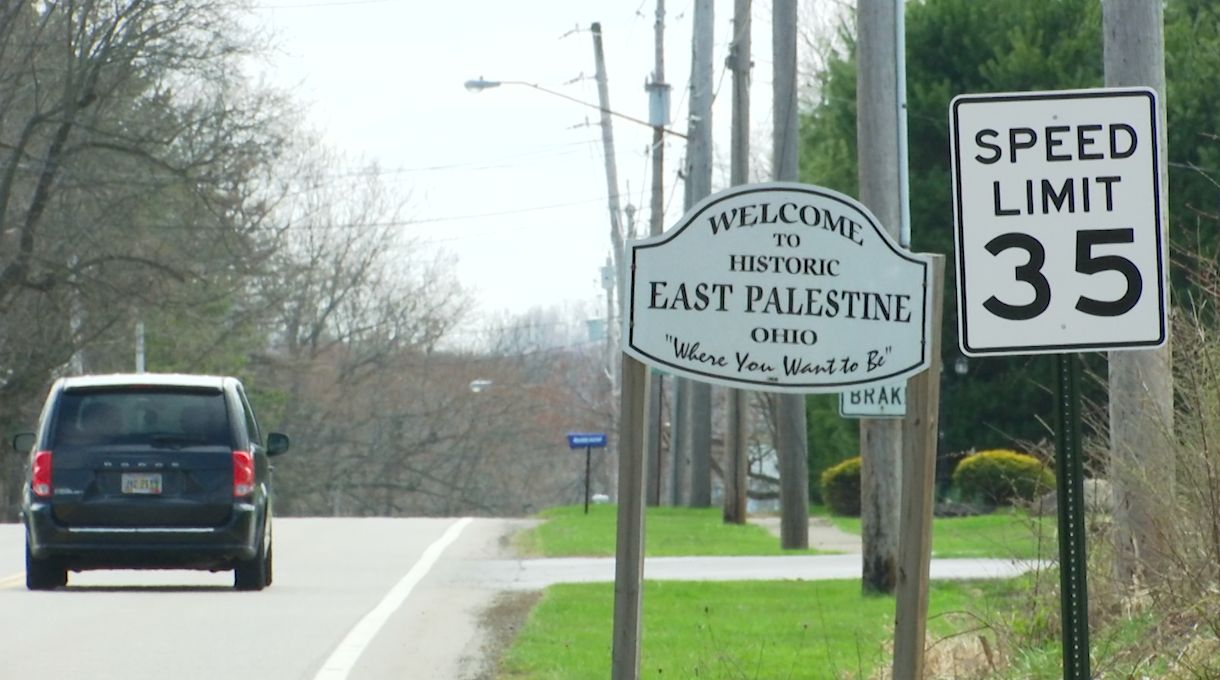
In a separate interview after the event, Rep. Bill Johnson, a Republican who represents East Palestine, had this message for his constituents.
“This is not over when I say it’s over. It’s not over when Norfolk Southern or the EPA say it’s over,” he said. “It’s not over until the people of East Palestine say we feel safe going back into our homes and living in our community. They’re the ones that get to say that it’s over.”
At the derailment site in East Palestine, the cleanup effort remains ongoing and the EPA estimates it should be completed by June.
Some residents feel removing the contaminated soil and waste water is just one piece of the puzzle, though, and in so many other ways, they already feel forgotten by officials.
Even though Norfolk Southern has set up an assistance center in town, the state has opened up a medical clinic, and the federal government is helping oversee testing and joined the state in suing Norfolk Southern, residents like Shelby Walker say things like this.
“We have had more help from random people than we have had from our government or anybody else,” she told Spectrum News last week.
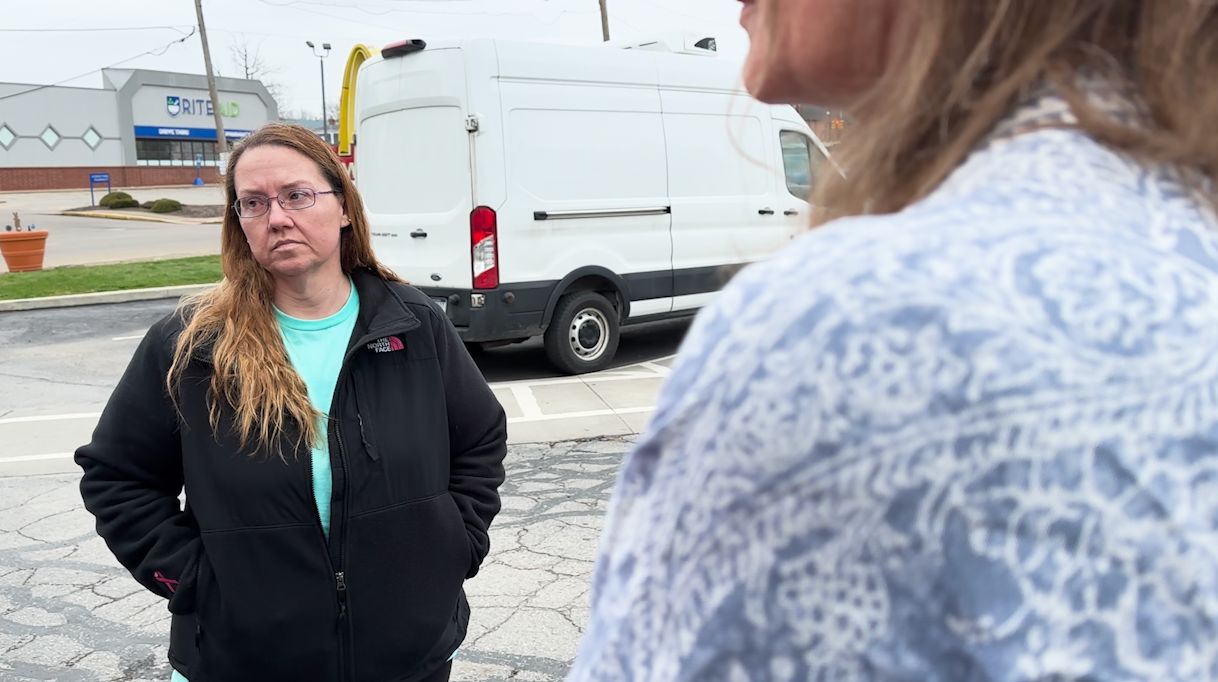
Walker’s house sits about 900 feet from the derailment site. Her family of 11 is now separated in hotels, at grandparents’ homes, and in temporary apartments.
After one train car ended up in her backyard, Walker started cleaning up her damaged property and got infections, is now using an inhaler for the first time in her life, and her urine tested positive for vinyl chloride, one of the chemicals that was burned.
She said she’s frustrated that Biden visited Mississippi after recent severe weather, but not East Palestine.
“All those people that lost their homes in tornados, our president was right there. He hasn’t come to see us. He hasn’t came to help us,” Walker said.
Though multiple levels of the federal government are engaged, Walked said it’s hard to get straight answers with so many agencies involved.
“We need somebody here in control. There’s too many hands in the pot and there’s too many unanswered questions,” she said.
While lawmakers insist there is coordination and communication at all levels, the people on the receiving end say it feels more chaotic.
For lifelong residents like Cozza, the last two months have felt life-changing. And it’s unclear whether any amount of help can bring back how things were before the derailment.
“They talk about making us whole, they can never make us whole for what they took from us. They took our sense of peace,” Cozza said.








